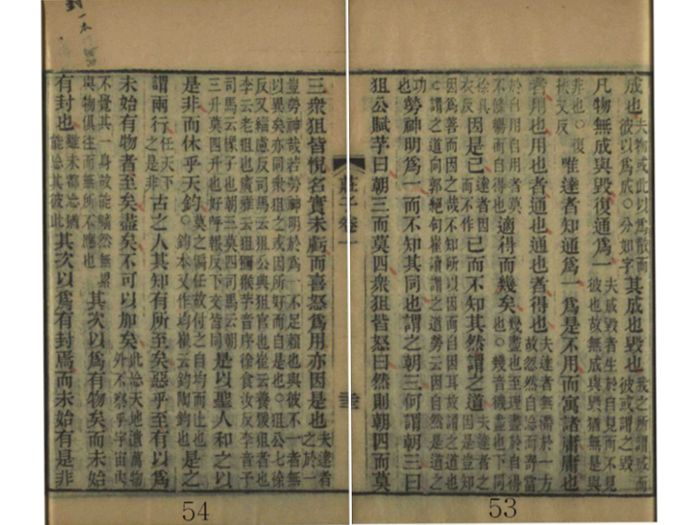(Translation) 朝三暮四
| Primary Source | ||
|---|---|---|
 |
Title | |
| English | ||
| Chinese | ||
| Korean(RR) | ||
| Text Details | ||
| Genre | ||
| Type | ||
| Author(s) | ||
| Year | ||
| Source | ||
| Key Concepts | ||
| Translation Info | ||
| Translator(s) | Participants of 2018 Hanmun Summer Workshop (Intermediate Training Group) | |
| Editor(s) | ||
| Year | 2018 | |
Original Script
Translation
Three in the morning, four at night
We struggle in our minds and spirits to unify things, and we don’t realize they are all the same. This is called three in the morning. What is called three in the morning? The monkey master gave out acorns, saying, “Three in the morning and four at night.” The monkeys were all furious. The monkey master said, “In that case, four in the morning and three at night.” The monkeys were all overjoyed. In name and in actuality there has been no harm done. Rather, joy and anger have their uses; they also are based on what people think right. This is how the sage harmonizes the people with right and wrong and rests in the order of things. We call this the way of both/and.틀:Ref
틀:Note Zhuangzi
Kathy Lin
- Discussion Questions:
+ Several translation choices that can be deliberated are: "the order of things" for 天钧 and "both/and" for 两行 + 莫means literally, evening or dusk, but using the word "night" has more of a bite to it in English, thinking of Orwell's "Politics and the English Language." I'll take the stand that a less literal translation choice is justified to create snappiness or "bite" in the resulting translation, but we can debate this.